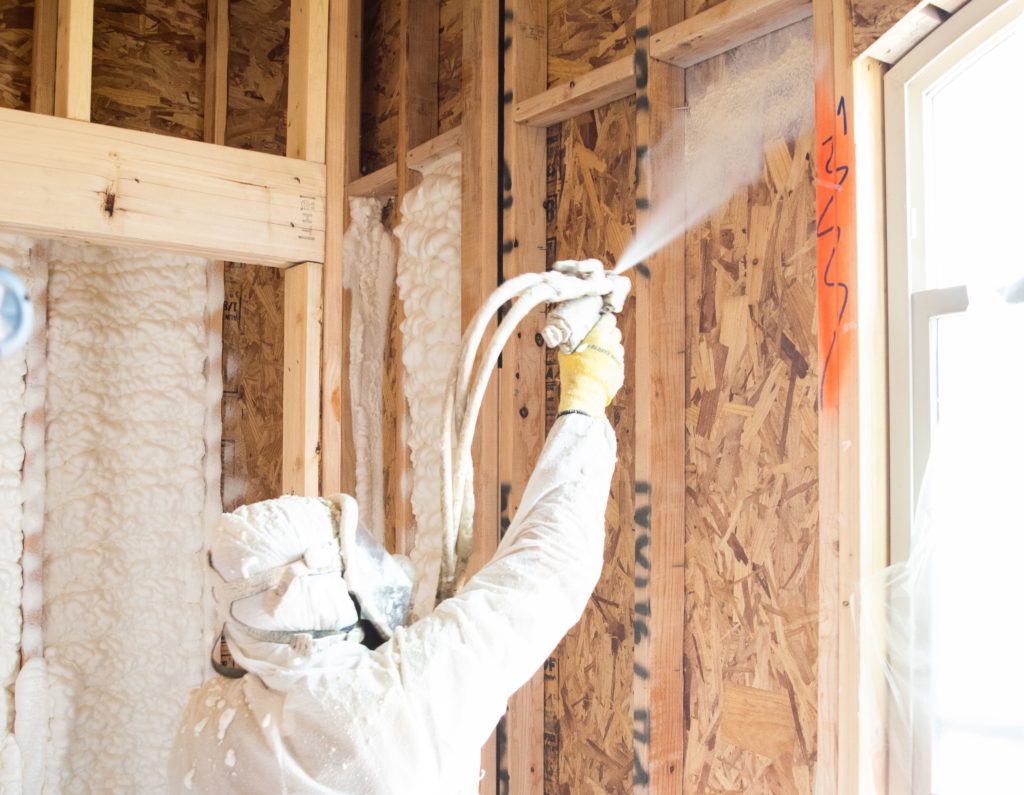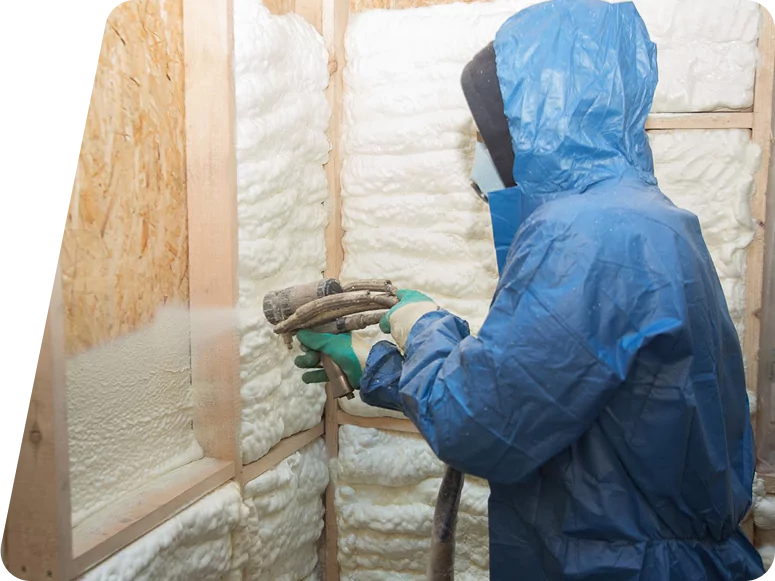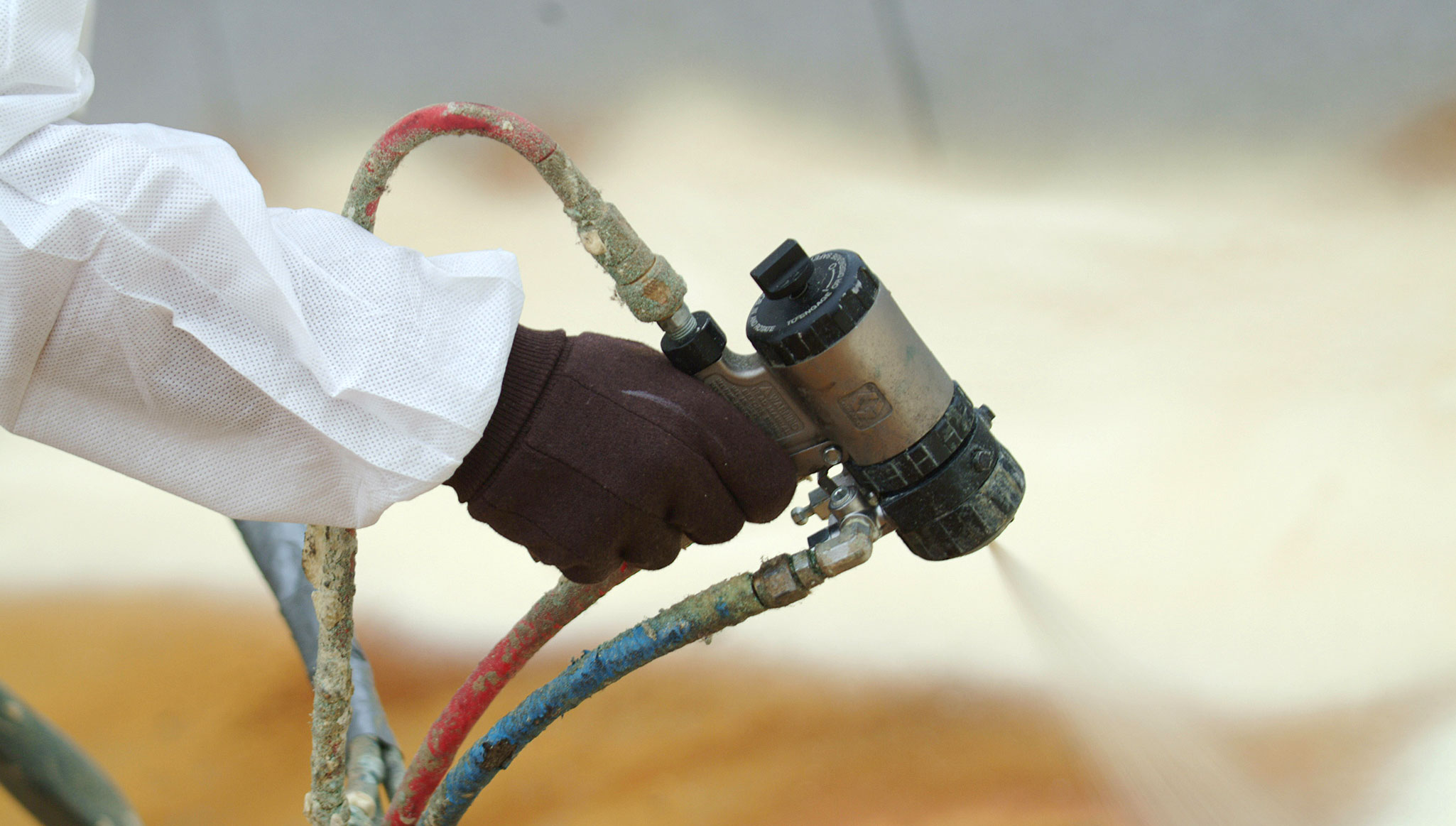
Spray foam insulation, likewise called spray foam or spray polyurethane foam (SPF), is an alternative to conventional building insulation.
Spray foam insulation is versatile and can be used to insulate your roofing, loft, walls and floor.
In spite of it being a flexible product that assists keep warmth, therefore minimizing energy costs, there are some vital downsides to think about, such as:
Problem in eliminating the item when it’s been set up
Potential reduction of ventilation within the roofing system space triggering humidity and damp; placing roofing lumbers at risk of decay.
Hazardous fumes are emitted during setup, and might stick around afterwards
Shouldn’t be utilized in listed buildings
It’s often unsightly, messy and can’t be embellished over.
We ‘d advise getting specialist suggestions from a specialist or two in this area prior to proceeding with caution.
Keep reading to find out whether spray foam insulation is suitable for your house and just how much it costs, compared to other types of insulation.
What is spray foam insulation?
As the name recommends, spray foam insulation is a liquid foam which is sprayed into position and sets into an insulating layer. It can be utilized to insulate your roof, loft, walls, floors and more.
It has remained in use for over 30 years and is now becoming progressively popular as it’s an efficient insulator and can also stop air leakage. However it’s more expensive than standard kinds of insulation, such as mineral or glass-wool, polystyrene slabs or expanded polystyrene (EPS).
There are two types of spray foam insulation to pick from:
Closed cell spray foam
Open cell spray foam
If spray foam insulation is right for your home and budget plan, the type you select will depend on what you desire it to do. Keep checking out to find out more about the various types.
If you’re wanting to insulate your loft, our dedicated guide explains the different types of loft insulation.
Should I get spray foam insulation in my house?
One reason individuals do not insulate their lofts is so they can save things in them. The required 270mm density of loft insulation is often higher than the joists, so you can’t lay boards on top.
Nevertheless, 100mm of spray foam insulation is equivalent to around 170mm of loft insulation, according to the National Insulation Association. Spray foam insulation is a much better insulator than mineral wool loft insulation as you need less of it to get the same insulating result.
Some spray foam insulation sets stiff and can likewise be used to help enhance roofing systems that are suffering from nail fatigue (when the nails used to hold slates in place rust) or assistance cavity walls where the wall ties are failing (triggering cracks and bulges in walls).
But bear in mind that your roofing needs to be in an usually good condition and not leaking, or it can cause brand-new issues.
Spray foam is likewise worth thinking about if you have hard-to-treat cavity walls or strong walls that aren’t ideal for external insulation due to preparing limitations.
Some kinds of foam insulation are waterproof however likewise breathable, so appropriate for homes in flood-prone areas. It’s still important to ensure your loft is effectively ventilated though, so that it does not cause concerns with moist – check our suggestions on picking an installer, listed below, for more detail.
However, spray foam is more costly than other conventional types of insulation, and you’ll require to get a specialist installer to fit it.
As every home is various, and it’s difficult to get rid of spray foam that has actually been set up, we ‘d advise getting specialist recommendations from a specialist in this area before proceeding – read more below in our section on ‘finding a spray foam setup installer’.
Spray foam insulation costs and cost savings
Spray foam insulation is not offered totally free by energy business. If your loft or walls aren’t insulated, it deserves inspecting whether you can get free insulation from your energy provider initially.
Some energy companies provide this to consumers qualified under the ECO Scheme – for example, if you’re on government advantages or your house is among those which would most benefit from insulation.
How much spray foam insulation costs depends on the thickness, the type (closed or open cell), the size of the location you wish to insulate, and how it’s installed.
The National Insulation Association suggests a guide cost of around ₤ 20 to ₤ 50 per square metre. The lower cost is for a thin foam layer for stabilisation, and the greater expense for a thicker insulating layer. Closed cell spray foam insulation is generally pricier than open cell. The problem of setup, type of roofing and any repair needed will likewise influence the expense.
Spray foam insulation is more expensive than other types of insulation.
Spray foam insulation is more pricey than other types of insulation. The Energy Saving Trust estimates it costs around ₤ 300 to insulate the loft of a semi-detached home (3 bed rooms). However it’s most likely to cost over ₤ 1,000 to insulate the same home with foam insulation, and we were quoted ₤ 2,500 – ₤ 3,000 to insulate the loft of a 3 bed room semi in southeast England.
As spray foam insulation is expensive, it suggests it will take a lot longer to pay back from the savings on your energy expenses; over a minimum of seven years (based on a cost of ₤ 1,000, saving you ₤ 140 annually on your energy expenses.
Spray insulation close-up
Types of spray foam insulation
There are 2 kinds of spray foam insulation: open-cell and closed-cell.
Both are typically made from polyurethane and filled with bubbles of gas or air, however have different homes when they set. We explain why you might pick one or the other.
Closed cell spray foam
Closed cell spray foam sets into a rigid solid which can assist support the structure of your home if it’s not in the best condition. It tends to be a much better insulator than open cell spray foam This is since when it sets, it includes lots of different pockets of gas which slow down the motion of heat through it.
But it’s a moisture barrier, so you’ll require to make certain your room or loft is well-ventilated to stop condensation developing.
Open cell spray foam.
As soon as set, open cell spray foam is less dense– you can compress it with your hand. So it can’t be used as a structural assistance. It’s not as excellent an insulator as closed cell foam, so you’ll require to install a thicker layer to get the exact same level of insulation
Open cell spray foam is often used as sound insulation.
Open cell spray foam is frequently used as sound insulation as it obstructs and reduces airflow. It enables moisture through it so there’s less worry of condensation building up.
Discovering a spray foam insulation installer
Spray foam insulation ought to be set up by an expert, the National Insulation Association recommends. This is since installers need to be trained to use the foam correctly, and need to be evaluated by the British Board of Agrément (BBA – a UK trade body which certifies installers’ proficiency). The spray foam item must likewise have a BBA certificate or equivalent, the National Insulation Association suggests, to show it abides by Building Regulations.
An installer should carry out a study before starting the job. This normally consists of a U-value calculation and condensation risk computation. This shows how well-insulated your home is (a lower U-value equates to better insulation) and assess the risk of condensation taking place in the structure of your house (interstitial condensation). It must determine any problems and what steps are needed to prevent them.
An installer ought to also utilize expert software to calculate the thickness of spray foam you need – according to whether you’re looking for structural assistance or sound-proofing.
Applied improperly, expanding foam can put pressure on the structure of your home and danger damaging it. Throughout installation, hazardous fumes are emitted which should not be breathed in.





